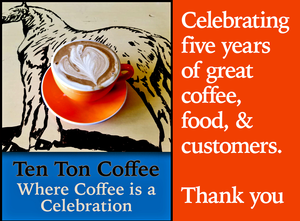Death Of Extremism?
May 5, 2011
I n the two decades we lived in the Seattle area, we made a lot friends. Some of them were Asian immigrants and one of those was Sary Math.
Sary was born and raised in Cambodia, but he isn't ethnic Khmer like most Cambodians. He belongs a to fairly large ethnic minority known as Cham, a people who hail from the ancient kingdom of Champa that once stretched from the coast of Vietnam well into Thailand.
At some point during that Indochina's equivalent of the Middle Ages, many Cham converted to Islam and settled along the Mekong River, where they still live in small rural villages.
During the Khmer Rouge regime of the 1970s, the Cham were persecuted for their religious practices, forced to cut their hair, forced to eat pork, put to death for the slightest offenses against the regime and killed by the thousands along with other minorities (such as Vietnamese immigrants) in a massive ethnic cleansing.
Sary fled Cambodia shortly before this all went down, emigrated to the United States and resettled in Bellevue, where he lives with his Moroccan born wife Fatimah. I met them doing business for Clear Path International more than a decade ago.
Sary and Fatimah are practicing Muslims, though not in a zealous way. Fatimah covers her hair but not her face. Sary sometimes sneaks a beer. If his volunteer work for Clear Path conflicted with the five daily prayers, he would often skip them, figuring the aid he helped provide to his people back home was just as much a part of his calling and his spiritual duty as his worship discipline. At the time, we were supplying a hospital in Cambodia's Kampong Cham Province with medical equipment and supplies donated by Puget Sound-area medical facilities.
Then came 9-11.
One of our first fears after the horror of death, demise and destruction subsided was the impact this despicable act of terrorism would have on our friends of Muslim faith.
Would it polarize the world along religious lines? Would it bring us back to the time of the crusades and give extremists the satisfaction of stirring up hatred between people with different beliefs?
Sary was traveling at the time it happened, so we called Fatimah and she was obviously nervous. They lived in a low-income apartment complex and she was getting stares plus off-color remarks. Even in Seattle, the atmosphere for Muslims was tense.
Of course allowing extremists to hijack rational thinking is exactly what they want. They thrive on this kind of division, forcing people with otherwise moderate and peaceful tendencies into their camp of violence. The emotions in the wake of the attacks sought a scapegoat. With the real perpetrators are out of reach, they looked for a substitute.
In the aftermath of 9-11, the evolution of relations with Muslims has been mixed. Many Americans who knew little about that faith sought to acquaint themselves better and realized Al Qaeda-style Jihadists are dangerous zealots who live and act by a narrow, twisted interpretation of the Koran.
But tensions remained, fueled by those who continued to believe that all Muslims are somehow naturally vulnerable as potential Al Qaeda recruits and thus automatically suspect.
Well, the real perpetrator of the 9-11 attacks is dead now and the world issued a big sigh of relief.
With that, it should be time to put a decade of tension behind us and move on. Al Qaeda still exists, but its appeal in the Muslim world (whatever it is or was) has been eclipsed by the Arab Spring that has spread the desire for democracy.
That new movement more than anything should underscore how the aspirations of people who may have different religious beliefs are essentially the same and how the values of many Christians and Muslims are a lot closer than some would like us to believe.
May the death of the 9-11 mastermind and of the way it polarized the world be a nail in the coffin of extremism.






Reader Comments(0)